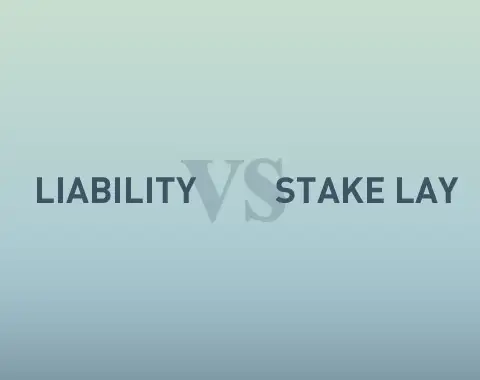
The term liability is defined in the dictionary as the "obligation to account for one's own actions". In broad terms that's exactly was it is.
In sports betting, liability is the amount we risk losing when we place a bet.
The value of a bet, or stake, is used in betting out of convenience, when we need to quantify a bet. The reference used is usually the stake value. So the higher the stake, the higher the bet is.
This nominal value, or stake, is directly correspondent to the liability, so the higher the stake, the higher the liability.
In a traditional bookmaker, there are no doubts, since the nominal value equals the responsibility: in a back bet the stake is as high as the liability.

However, in a betting exchange, when we bet against something we are placing a Lay bet. In this case the value of the stake doesn't equal the liability: the stake of a Lay bet is the liability of the bet in favour that we have accepted to bet against and not the amount we risk losing.
That is, when we place a Lay bet, the stake is what we may win (the amount those who bet in favour may lose). The amount we risk losing, our liability, is the potential winnings of those who bet in favour.
Formula to calculate the stake and liability of a Lay bet:


After this breef description of these 2 terms, you can now move on to an example of what is trading.




